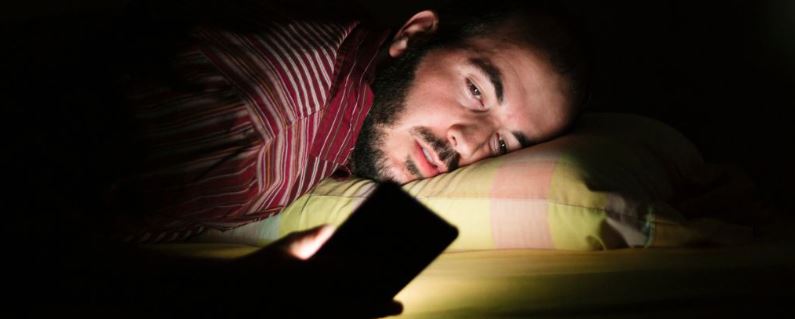


 4:24:51
4:24:51  2024-07-07
2024-07-07  1069
1069

The glow of a lightbulb or smartphone at night can mess with the body's circadian rhythm. Now, a new study suggests that exposure to artificial light after midnight may raise the risk of developing type 2 diabetes.
The research was conducted among nearly 85,000 people, between the ages of 40 and 69, who wore devices on their wrists, day and night for one week, to track their exposure to different levels of light.
As part of the UK Biobank experiment, the health of the cohort was tracked for as long as nine years. Those volunteers who later went on to develop type 2 diabetes were more likely to have been exposed to light between 12:30 am and 6:00 am, during the week-long study period.
The results do not prove cause and effect, but they do reveal a dose-dependent relationship between brighter light in the middle of the night and the risk of a metabolic disorder, which bolsters the association.
Those participants in the top 10 percent for light exposure at night had as much as a 67 percent higher risk of developing type 2 diabetes than those in the bottom 50th percentile.
Research suggests that exposure to artificial light at night, whether it be yellow light from your reading lamp or blue light from your smartphone or TV, can make it harder to fall asleep. But even when researchers accounted for sleep patterns and duration in the current study, the results held, which suggests another mechanism is at play.
Other possible contributing factors, like a person's sex, their genetic risk for diabetes, their diet, physical activity, daylight exposure, smoking, or alcohol use, also had no impact on the results.
"Advising people to avoid night light is a simple and cost-effective recommendation that may ease the global health burden of type 2 diabetes," conclude the authors of the study, led by researchers at Monash University in Australia.
In the past, some other observational studies have also linked artificial light at night to insulin resistance, but these experiments did not measure indoor, artificial light sources nearly as closely or for as long.
Emerging evidence in animals and humans suggests exposure to artificial light can disrupt circadian rhythms, leading to reduced glucose tolerance, altered insulin secretion, and weight gain – all of which are tied to an increased risk of metabolic disorders like type 2 diabetes.
One major limitation of the study is that researchers were not able to take into account meal times, which can have an impact on both circadian rhythms and glucose tolerance. Furthermore, some socioeconomic factors, like a person's housing situation, were accounted for at a regional, not an individual level, and only older adults were considered.
There's also the fact that individual bodies respond very differently to light, with some studies suggesting the intensity of light needed to suppress the production of melatonin, which helps regulate our circadian rhythm, can range from 6 to 350 lux.
Nevertheless, previous experiments suggest that when melatonin is disrupted and the circadian rhythm is thrown out of whack, it can lead to the pancreas secreting less insulin. This could be a contributing factor to the development of diabetes.
Far more rigorous studies are needed before scientists can truly understand how light at night impacts the circadian rhythm and what that may do, in turn, to the health of the body's metabolism.
Some studies suggest that even a weekend of camping without artificial light can help reset a person's circadian rhythm. Perhaps that's just what the doctor should order.
Reality Of Islam |
|

Batteries p

Some 1.2 bi
 9:3:43
9:3:43
 2018-11-05
2018-11-05
10 benefits of Marriage in Islam
 7:5:22
7:5:22
 2019-04-08
2019-04-08
benefits of reciting surat yunus, hud &
 9:45:7
9:45:7
 2018-12-24
2018-12-24
advantages & disadvantages of divorce
 11:35:12
11:35:12
 2018-06-10
2018-06-10
 6:0:51
6:0:51
 2018-10-16
2018-10-16
 8:15:37
8:15:37
 2023-02-16
2023-02-16
 3:42:22
3:42:22
 2021-12-24
2021-12-24
 1:34:8
1:34:8
 2022-02-01
2022-02-01
 8:39:51
8:39:51
 2022-09-23
2022-09-23
 2:13:43
2:13:43
 2022-05-27
2022-05-27
 12:10:56
12:10:56
 2022-11-17
2022-11-17
 2:33:4
2:33:4
 2023-02-15
2023-02-15
 5:41:46
5:41:46
 2023-03-18
2023-03-18
| LATEST |